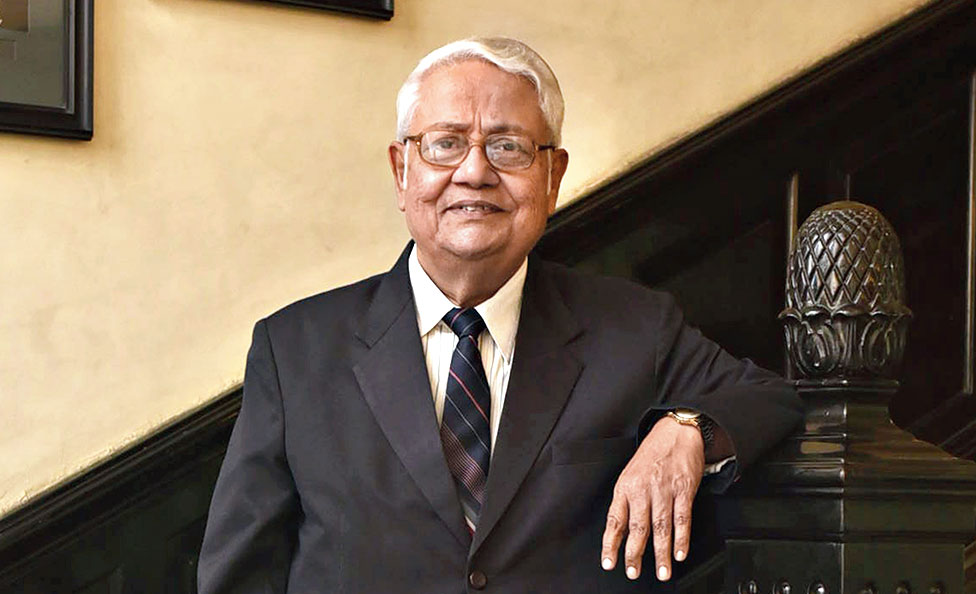He has been a lawyer for about 45 years now and is a fourth-generation member of the famed Calcutta Club. In the president’s chair for about four months now, Subrata Kumar Basu tells us about what’s on his mind in a t2 chat:
Tell us about your association with the club?
I am a fourth-generation member of this club and I became a member in 1993. My great granduncle and my grandfather were among the founders of the club. Incidentally, both these gentlemen were also the founder-president and the founder-general secretary of the Mohun Bagan club, which was started from our residence in north Calcutta. Most of my granduncles and uncles were members and most of my cousins are also members. So this club has a very, very old association, so far as I am concerned. In fact, in our younger days, we weren’t even allowed inside the club premises. We could come swimming and only enter through the back gate. When I joined the High Court, after court I used to come here, have a swim during summer and then go off to the chambers.
What’s on the social calendar of the club?
I became president at the end of July and our first event was the Independence Day programme, followed by the members’ night that saw participation in large numbers — eminent barristers and doctors taking part in various events to showcase their multifaceted talent. This was followed by Bijoya-Diwali celebration with music and good food. This year, we stopped the firework display, considering the pollution.
Now children are allowed almost every day and almost in every spot of the club. And we have a lot of children’s programmes too. We recently had the cake-mixing programme, which was a huge success. This is the start of the best season in Calcutta — the Christmas and New Year season. Our next programme is the Bakery Carnival on December 15, which is the best programme of the club — it starts at 11am and goes on till 11pm. Members, their children and their grandchildren come and attend and coupled with the clement weather, they thoroughly enjoy themselves. The evening is for the younger people with music and dancing. There are a lot of food stalls and a lot of delicious items. There is also the Christmas carol singing programme by the children of members. The 25th is the usual Christmas lunch and we have a lot of people who make it a point to not miss it.
We have our Hindusthani classical programme, which is a big fixture. The New Year’s Eve night with music and dancing goes on till the wee hours of the New Year. We have also started preparing for the International Evening, which happens in January. This is a landmark programme of the city with almost all of the city converging at the club. We earmark each food stall with the name of a particular country — so the ice cream stall is generally called Iceland!
We then have our Commemoration Day Dinner, on February 3, with eminent people as our chief guest and a lot of our members in attendance. Thereafter we have the National Debate, which is one of the biggest events on the social calendar of the city — the entire field, which holds close to around 4,000 people, is jampacked.
What facilities do you offer for the younger members?
Since the younger members are using the club more often now, we have got a reasonably well-equipped gym, swimming pool, tennis, badminton, table tennis and football. We started tennis-ball cricket in 2009. We play inter-club and intra-club games and annual events with a lot of social clubs. Participation in these events have enthused the younger generation, making them find time to come to the club even at 7-8pm to play a game or use the gym or go for a swim.
What are some of the challenges you are anticipating?
A club is like an industry, only in a micro form — it has all the myriad problems of any industry, be it labour, maintenance or finances. In order to keep abreast with the present inflationary trends is very, very difficult because we try to keep our food prices, our bakery prices reasonable. That is one of the biggest challenges of running a club. The scenario has changed, Bengal is not what it was when our forefathers started the club and that’s a challenge I face every day.
How do you strike a balance between running the club and life outside the club?
So far as my personal life is concerned, I do have three sons and they are all into their own work — eldest one is a professor and the other two are lawyers. I still go to court every day, unless I am sick. When court breaks off, I have my chambers in the High Court area. It’s an old saying that the club is a second home and I have been a member for 26 years and been in the committee for nine years and am the president now.











